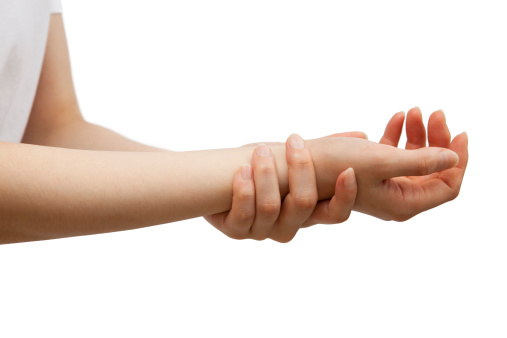 Arthritis is one of the most common diseases associated with the aging process. Although there are many forms of arthritis occurring at various ages, the most common type is the one associated with aging. This type of arthropathy, known as degenerative joint disease or osteoarthritis, can affect many different joints of the body.
Arthritis is one of the most common diseases associated with the aging process. Although there are many forms of arthritis occurring at various ages, the most common type is the one associated with aging. This type of arthropathy, known as degenerative joint disease or osteoarthritis, can affect many different joints of the body.
The most common joints to become affected are the knees and hips. Surgical procedures involving partial or complete joint replacements are frequently the treatment method in severe cases.
Degenerative joint disease is a disorder which causes the deterioration of the cartilage inside the joints. It is also associated with joint swelling, pain, loss of mobility, joint enlargement, deformity, and crepitus or joint cracking.
Arthritis Treatments
There are various treatments available including physical therapy, exercise, acupuncture, nutritional supplements, and herbal preparations.Also Read ==> Pain Behind Knee – Causes and Natural Treatments
One of the more popular treatments is glucosamine sulphate. This product is available in many retail outlets and has been sold to consumers for several decades. It is available in solid, powder, and liquid forms.
Supplements for Arthritis
Although glucosamine and its cousin chondroitin sulphate have been heavily marketed in the supplement industry, there has been a considerable amount of contradictory evidence regarding its effectiveness in a clinical setting. Glucosamine is one of the most frequently utilized remedies for arthritis with over two billion dollars in global sales.
A recent study published in the journal Arthritis & Rheumatology may add to the confusion. This study was somewhat interesting because it not only looked at the effects of glucosamine on knee pain in patients with osteoarthritis, but also assessed its effects upon the degree of cartilage deterioration and damage to the bone ends.
Researchers recruited 201 adults with knee pain caused from degenerative joint disease and randomly assigned them into two different groups. Group one received a daily dose of 1,500 mg of glucosamine in a drink of lemonade. The other group was given a placebo drink containing no glucosamine. During the six month follow-up, the participants were called and asked questions regarding their knee arthritis. At the end of the six-months, all of the subjects had an MRI examination on their knees. They also measured the urinary excretion of a protein called CTX-11 which evaluates the degree of cartilage destruction.
The researchers evaluated the degree of knee pain, amount of cartilage destruction, nature of the bone lesions, and excretion of CTX-11 in the urine of each participant.
The researchers found that there was no difference in any of the measured outcomes between the groups of participants. In other words, the glucosamine had no effect at all on the amount of knee pain, knee pathology, or the degree of cartilage destruction in those taking it compared to those who did not.
Although I am not surprised by the outcome of this study, there are a few issues that are important to consider in this case such as the dosage of glucosamine, the fact that it was taken alone, and the length of time this study was conducted. If taken alone, the dosage of glucosamine should be at least twice this amount and the study time needs to be at least one year in duration.
Most of the newer research regarding the use of glucosamine in the management of degenerative joint disease is not positive.
I recommend other methods such as fish oil, curcumin, ice, and exercise as a conservative means to manage this type of knee pain.
Source:
“Glucosamine supplement does not help knee pain or deterioration,” CBC News web site; http://www.cbc.ca/news/health/glucosamine-supplement-does-not-help-knee-pain-or-deterioration-1.2567070, last accessed March 11, 2014.
